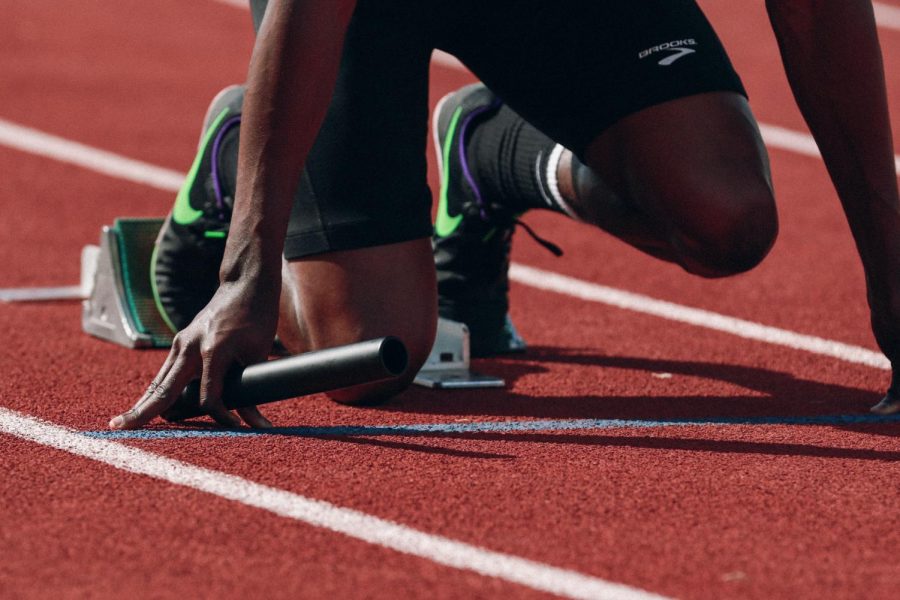Sportswashing is a Problem
December 14, 2021
Against the backdrop of the highly-anticipated 2022 Winter Olympic Games scheduled to be held in Beijing, China, the awarding of the 2022 World Cup to the country of Qatar has raised questions from human rights groups and media outlets over the country’s lack of stability and abysmal human rights record.
From the 1936 Olympic Games in Berlin, in which Nazi Germany attempted to broadcast a positive view of the country through glowing media coverage of the event, the practice of “sportswashing,” or using high-profile sporting events or teams to improve public image, has become a greater and more relevant problem in the light of recent events.
As preparations for the World Cup continue, one of the most highlighted human rights issues in Qatar has been the treatment of LGBTQ+ individuals in the country, which is currently considered a crime punishable by fines or imprisonment. Despite statements from the FIFA President Sepp Blatter that the federation wants to “open this game to everybody, and to open it to all cultures,” numerous LGBTQ+ activists have expressed continued concern and advocated boycotts, and Australia’s Josh Cavallo, a top-flight left-back for Adelaide United who came out as gay in October 2021, has said he would be “very scared” to play at the 2022 World Cup.
Preparation for the event itself has also sparked concern, as reports of severe mistreatment of workers hired to build infrastructure emerged. Appalling labor conditions, including residence in unsanitary labor camps, withholding or destruction of legal documents, and exploitation of migrant workers under the Kafala system have led to the deaths of an estimated 6,500 migrant workers from 5 countries between 2010 and 2020.
In China, the International Olympic Committee (IOC) has been accused of covering up the high-profile case of Chinese tennis star Peng Shuai by defending the continuation of the 2022 Beijing Olympics in spite of Peng’s disappearance after accusing a high-ranking Chinese government official of sexual assault. Although the IOC justified their decision by labeling the Olympic Games as “the only event that brings the entire world together in peaceful competition,” Human Rights Watch China Director Sophie Richardson condemned the IOC’s “desperat[ion] to keep a Games on the rails no matter the human cost.”
However, like the 2018 World Cup, held in Russia, a similarly controversial event due to the nation’s stained human rights record, international attention to human rights abuses in Qatar and China may fade from major news outlets once the World Cup actually begins, encouraged by popular emphasis for political neutrality in sports.
Despite calls for apoliticality, however, the fact of the matter is that sports is not inherently politically neutral, and shouldn’t be treated as such. From black power salutes by medal winners at the 1968 Mexico City Olympics to Muhammad Ali’s refusal of the Vietnam War draft to the involvement of star athletes in the Black Lives Matter movement, sports have always involved politics and conflicts over power, and it’s critical that governments and sporting federations today play an active role in confronting sportswashing and pushing for stronger action against human rights violations.
Despite the alleged benefits of hosting major sporting events in countries enveloped in moral controversy, including the Qatar 2022 Committee’s statement that the anticipated World Cup has served as a “catalyst” for the country’s improvements to its human rights record, the reality is that the effectiveness of sportswashing as a means of diverting international attention contributes to the continued oppression of victims.
Qatar, for one, still hasn’t made much progress towards this purported goal, and currently doesn’t investigate migrant worker deaths. Once the Cup begins and media attention becomes even more drowned out, this track record of human rights abuses and neglect will likely continue, no longer deterred by international pressure.
Sportswashing aside, even for countries with relatively better human rights records, large sporting events are often exceedingly costly and also negatively impact local residents. In preparation for the 2010 World Cup in South Africa, numerous low-income Cape Town residents were forcibly evicted and relocated to what some residents call a “concentration camp” in an effort by the South African government to conceal urban slums and display a more positive view of the city. Numerous residents and grassroots activists have also expressed anger and concern as public funds intended for social improvement were used for building stadiums and upgrading airports instead.
Prior to the 2012 Olympic Games held in London, fury erupted as Dow Chemical Company – the same Dow that gained infamy for manufacturing napalm during the Vietnam War as well as for its involvement in the 1984 Bhopal gas tragedy – emerged as a sponsor.
On a positive note, the hosting of the 2022 World Cup in Qatar – along with similarly controversial events like the 2022 Beijing Olympics – presents a unique opportunity for governments, federations, and players alike to improve human rights conditions. By calling for attention and asking for investigation into human rights abuses, these groups can bring about genuine change for the betterment of the world.
Photo courtesy of UNSPLASH.COM

